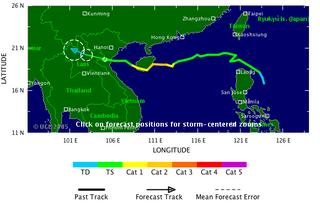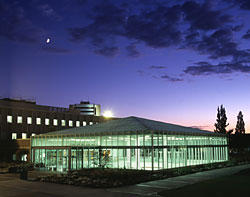The post at
Action at a distance got me thinking about the earning disparity between men and women in the USA. What I found became a little larger than a comment, so I am posting it on my blog.
So, if
Women in the United States who are 30 to 44 and who hold a university degree — meaning a bachelor’s degree, master’s degree, doctorate or medical degree — make only 62 percent of what similarly qualified men do.
That’s a lower rate than in all but three of the 19 countries for which numbers are available. The nations with greater inequity in pay are Germany, New Zealand and Switzerland.
So I went to the
site of the study to look at the numbers myself.
Women 30-44 years old, irregardless of education, earn 60.2% of men’s earnings. When 55-64 years old, women, irregardless of education, earn 62.4% of men’s earnings. So, the AP report that women make 62% of what similarly qualified men do is mostly accurate, although they were off by 2%.
But then I wondered if they accurately reported that such a rate is lower than in all but 3 of 19 countries for which numbers are available. Is this a uniquely American phenomenon?
Switzerland was less than America, but Germany really wasn’t. Moreover, Britain was also less than the US, but left out of the report. In fact, it seems far more than only 3 countries have averages less than the USA. I quickly looked at 6 of the 21 (not 19) countries, and found 4 were lower than America—Britain, Switzerland, Canada, and Germany. The two that were not, France and Korea, were also two of the highest in the study.
Here’s what I found:
Country, age, percentage, age, percentage
USA: 30-44, 60.2%, 55-64, 62.4%Britain: 30-44, 55.6%, 55-64, 59.4%
Switzerland: 30-44, 54.4%, 55-64, 50/8%
Canada: 30-44, 59.4%, 55-64, 60.8%
Korea: 30-44, 74.4%, 55-64, 75.4%
France: 30-44, 73.8%, 55-64, 66.6%
Germany: 30-44, 56.4%, 55-64, 59.2%
A quick glance shows you can also throw the Netherlands into the mix with New Zealand. So, 6 countries, out of 21, are worse than the USA.
I was still skeptical, so I looked at it in a different light.




These charts show that if upper secondary education is set as the bar, than generally across the US, people under that level of education make about 67% what people with upper secondary education make. Receiving a tertiary degree automatically gives about 70% more earning power over an upper secondary education. Comparing to the mean of all countries, the disparity in earning power between levels of education in America is more than other countries (see 78% earning power below upper secondary and 148% above) but our maximum earning potential with a tertiary degree is far greater (170% vs. 148%).
These statistics also show a disparity between men and women. Men below upper secondary make about 65% while women make 62%. Men with tertiary degrees make about 173% what they do with upper secondary education while women make 164%.
All the numbers seem to show a general disparity between men and women at similar education levels and ages. This should be a great injustice right? We should stand up and fight for equal pay, right? Well, I thought, if this is the case, I must look into my personal profession.
Medicine. I want to be a doctor. I am applying to medical schools and interviewing at them right now. All the statistics reported above include MD degrees. So, if these statistics tell the whole story, medicine should mirror them.
First, the
American Association of Medical Colleges reports that in 1960-1, 7% of students who applied to medical school were women, and 7% of students accepted were women. Medicine has made great strides in encouraging women to pursue medicine. In 2003-4, 50.8% of applying students were women, and 49.8% of accepted students were women.
The AAMC reports states that
The disciplines with the lowest percentage of women residents remain the surgical specialties and the highest percentages are obstetrics and gynecology and pediatrics. Although women now represent 75% of all residents in obstetrics and gynecology, the proportion of women ObGyn residents among all women residents has remained steady at 9% for over a decade. Similarly, since 1988, between 4% and
5% of all women have been enrolled in general surgical residencies at any one time; with the increasing numbers of women medical school graduates, the proportion of women among all general surgery residents has increased from 10% in 1988 to 25% in 2003.
… In contrast, Family Medicine experienced an increase in the percentage of all women
choosing that specialty from 9.6% in 1988 to 12.2% in 2003; women now represent 51% of Family Medicine residents. Thus, women continue to fill an increasing number of positions of residency and subsequently clinical practice as the number of graduates and residents increases; but within the population of all women residents, they select specialties in approximately the same proportions that they have chosen for decades.(emphasis added.)
The average age of someone entering medical school is 24 years old. This means that physicians 30-44 years old graduated, on average, 2-16 years ago. The percentage of women choosing residencies has not increased during this time although the actual number of women physicians has increased from 36% to 44.2%.
The highest residencies plus specialties, by percentage of total women, in 1993 and in 2003, are
Internal Medicine, 27.1%, 28.5%
Pediatrics, 15.2%, 15.0%
Family Practice, 10.2%, 12.3%
OB/GYN, 10%, 9.8%
Psychiatry, 8.3%, 7.0%
The highest residencies plus specialties, by percentage of total men, in 1993 and in 2003, are
Internal Medicine, 31%, 31.6%
All Surgery, 20.5%, 18.1%
Family Medicine, 7.3%, 8.2%
Anesthesiology, 6.6%, 6.0%
Radiology, 5.1%, 5.7%
According to
Physiciansearch.com, the average salaries of each specialty are:
Internal Medicine: 160,318
Pediatrics: 149,754
Family Practice: 147,516
OB/GYN: 248,294
Psychiatry: 174,658
All Surgeries (average): 340,658
Anesthesiology: 301,802
Radiology: 347,380
Therefore, the average salary of a female doctor in 2003, in one of the 5 specialties that make up 72.6% of all female physicians, is $169,224.60.
The average salary of a male doctor in 2003, in one of the 5 specialties that make up 69.6% of all male physicians, is $233,225.11.
These numbers show that on average a female physician makes 72.56% what a male physician makes. However, it also shows a gaping hole in the numbers sited earlier by the AP report. Salaries can never be compared solely on the basis of age and educational degree because different sexes choose to pursue different vocations and, in the case of medicine, different specialties within a vocation. Personally, I found far more females in my history classes at college than in my microbiology classes. Most of the women in my history classes wanted to be high school history teachers, while most women in my microbiology classes wanted to be a college professor, dentist, or doctor. Obviously, the vocational preferences of sexes show a large disparity in earning potential. Ultimately, the numbers cited by the
Organization for Cooperation and Development are so broad as to be meaningless and so misconstrued as to blind the public from the true fact:
The disparate numbers highlight how societal and genetic influences cause women to pursue vocations with a smaller earning potential than men in western countries.


















